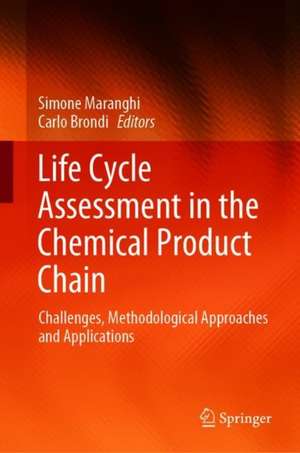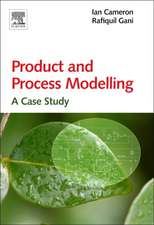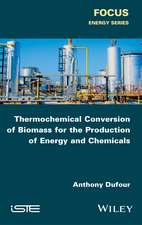Life Cycle Assessment in the Chemical Product Chain: Challenges, Methodological Approaches and Applications
Editat de Simone Maranghi, Carlo Brondien Limba Engleză Hardback – 6 feb 2020
| Toate formatele și edițiile | Preț | Express |
|---|---|---|
| Paperback (1) | 939.33 lei 6-8 săpt. | |
| Springer International Publishing – 6 feb 2021 | 939.33 lei 6-8 săpt. | |
| Hardback (1) | 945.14 lei 6-8 săpt. | |
| Springer International Publishing – 6 feb 2020 | 945.14 lei 6-8 săpt. |
Preț: 945.14 lei
Preț vechi: 1152.61 lei
-18% Nou
Puncte Express: 1418
Preț estimativ în valută:
180.87€ • 196.40$ • 151.93£
180.87€ • 196.40$ • 151.93£
Carte tipărită la comandă
Livrare economică 22 aprilie-06 mai
Preluare comenzi: 021 569.72.76
Specificații
ISBN-13: 9783030344238
ISBN-10: 3030344231
Pagini: 165
Ilustrații: XV, 165 p. 38 illus., 31 illus. in color.
Dimensiuni: 155 x 235 x 20 mm
Greutate: 0.44 kg
Ediția:1st ed. 2020
Editura: Springer International Publishing
Colecția Springer
Locul publicării:Cham, Switzerland
ISBN-10: 3030344231
Pagini: 165
Ilustrații: XV, 165 p. 38 illus., 31 illus. in color.
Dimensiuni: 155 x 235 x 20 mm
Greutate: 0.44 kg
Ediția:1st ed. 2020
Editura: Springer International Publishing
Colecția Springer
Locul publicării:Cham, Switzerland
Cuprins
Introduction.- The availability of suitable data-set for the LCA analysis of chemical substances.- Comparison of the LCIA methods used for the evaluation of chemicals.- LCA integration within sustainability metrics for chemical companies.- The LCA modelling of chemical companies in the industrial symbiosis perspective: allocation approaches and regulatory framework.- LCA application to chemical synthesis at laboratory scale.- LCA as a support tool for evaluation of industrial scale-up.- Application of LCA for the circular economy in the chemical industry.
Notă biografică
Simone Maranghi is a postdoctoral researcher at the R2ES Lab (Research on Renewable Energy and Sustainability) of the University of Siena - CSGI. He is a member of the Italian LCA Network Association and coordinator of the national working group “Chemical Processes and Products”. He has experience in the application of life cycle assessment for the environmental evaluation of chemical products and innovative energy systems. His research is focused on the application of life cycle thinking methodologies for the sustainability assessment and eco-design of product and processes in various sectors and the development of multi-indicator analysis for the rational use of energy sources. His research activities span from the environmental evaluation of renewable energy conversion systems to the sustainability assessment of novel chemical manufacturing procedures, industrial production processes (i.e. innovative textile finishing process and innovative electrical transformer manufacturing).
Carlo Brondi is a senior researcher at the Institute for Industrial Technologies and Automation (STIIMA - CNR) in Italy and team leader in project tasks in European, national and regional research initiatives. His research focuses on the life cycle assessment (LCA) of advanced technologies and LCA approaches in the manufacturing industry, and he has been involved in research on improvements in LCA application, in particular on adaptation to emerging industrial paradigms like the circular economy or Industry 4.0 and on the implementation of mathematical methods to support LCA effectiveness. He is also a panel member and reviewer for ISO, EPD and PEF schemes.
Textul de pe ultima copertă
This book outlines the methodologies, approaches and tools for modelling chemicals in a Life Cycle Assessment (LCA) perspective, and also covers the main advantages and drawbacks of applying LCA to chemical processes. In the first part of this book, authors pay close attention to the limitations of modelling the environmental and social impacts of chemical processes, providing valuable insights to the problems of the Life Cycle Inventory (LCI) analysis for chemical processes. In the second part of this book, readers will learn about the LCA application to chemical processes in the laboratory and industrial scale. In each chapter of this book, readers will also find specific case studies on the modelling and application of LCA in the chemical industry.
Caracteristici
Explores the Life Cycle Assessment (LCA) of chemical processes at the lab and industrial scale Collects methodologies, approaches and tools for modelling chemicals in a LCA Discusses the limitations of modelling the environmental and social impacts of chemical processes







